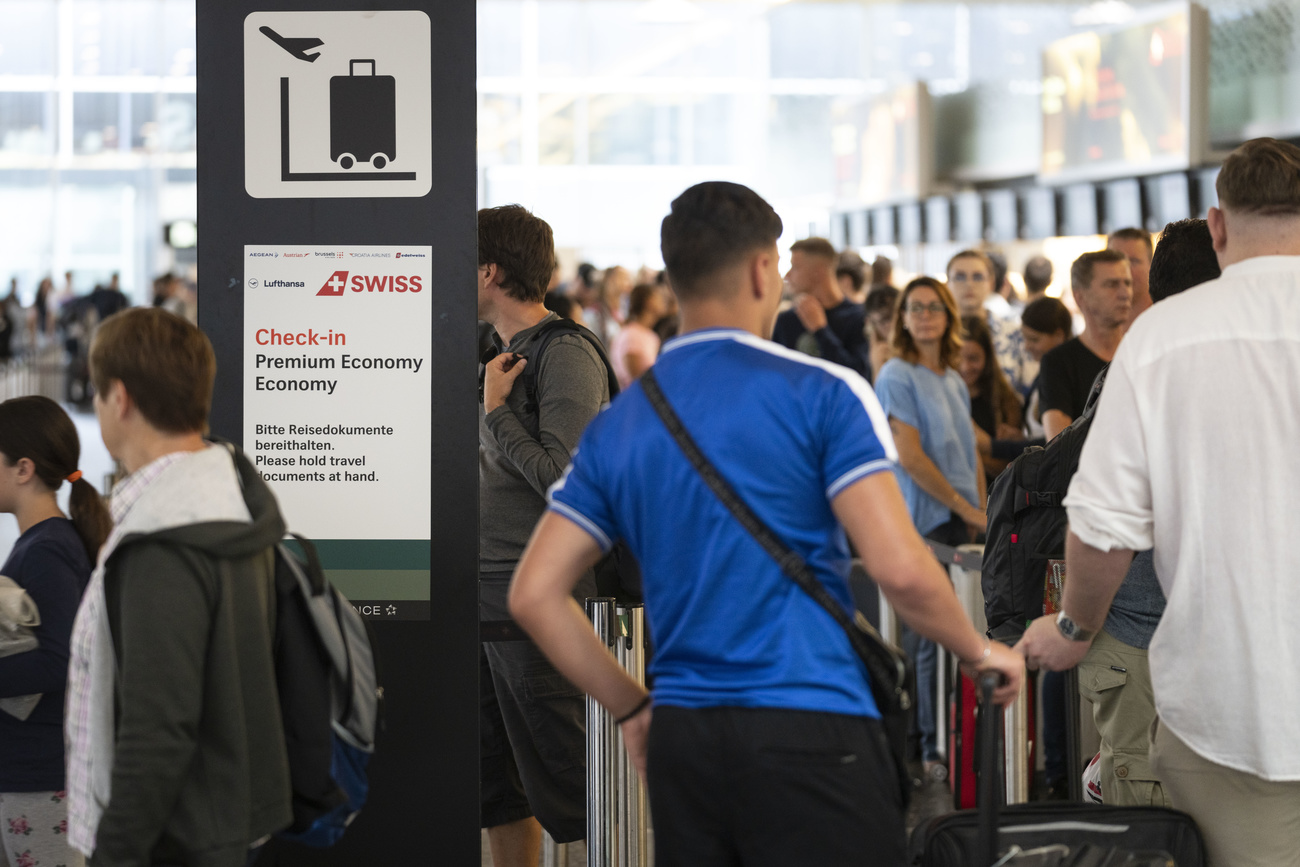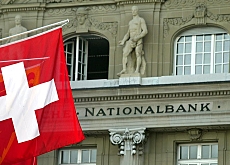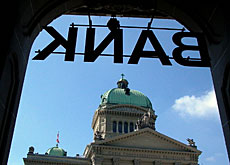Banks slammed for downplaying CIA probe

Swiss banks should have warned customers that secrecy laws did not protect details of their international transactions, financial expert Hans Geiger tells swissinfo.
Last weekend it emerged that US intelligence agencies had been monitoring records at the Belgium-based Society for Worldwide Interbank Financial Telecommunication (Swift) for the past five years.
Switzerland’s biggest banks, UBS and Credit Suisse, played down the news by saying the CIA probe only related to limited data. UBS and the Swiss Bankers Association both told swissinfo that the surveillance did not compromise Swiss banking secrecy.
But financial watchdog Action Finance Place Switzerland labelled this as a double standard, while Geiger, a professor at Zurich University’s Swiss Banking Institute also disagreed with the banks’ assessment.
swissinfo: What is the significance to bank customers of this CIA monitoring?
Hans Geiger: The fact that the CIA has got into Swift’s central database and gained access to this type of information is shocking.
Swift is the technological heartbeat of international banking. It is not just payments, but also transfers of securities, foreign exchanges – everything. When you make an international payment order you have to mention the amount, the recipient’s and payer’s names as well as their bank account numbers in order for it to be processed.
But what really shocked me is that customers have to read this in the media and did not get this information from their banks.
swissinfo: What should the banks have done?
H.G.: I don’t know how many banks knew about this, but the ones that did could have told customers, without mentioning the CIA operation, that if they conducted transfers outside of Switzerland then the Swiss have no legal powers to enforce privacy.
If they can’t influence what foreign agencies are doing, as in this case, then they should at least tell customer that things are not the way they think they are. That would at least have given the indication that Swiss banking secrecy is a bit relative.
Telling the truth is always better than telling someone what they want to hear and giving them a feeling about something that later turns out to be wrong.
swissinfo: Surely people already knew that surveillance takes place?
H.G.: The banks could reasonably expect that customers would know that their data leaves the country when they make a transaction abroad. But the customer could not be expected to know that the CIA screens this data even if you are not a suspect.
Under anti-money laundering laws banks have to pass on details of any suspicious transactions to an outside body. The banks have been very careful to tell customers about this, but they have not told customers at all about this [CIA] type of monitoring.
swissinfo: But the banks have been playing down the significance of the CIA operation…
H.G.: Legally speaking, the monitoring does not appear to compromise Swiss banking secrecy. But if you are a customer of a Swiss bank then you will feel that this has a lot to do with secrecy even if the lawyers say differently.
The way that Switzerland presents itself as a centre for banking secrecy creates the impression that the high priority is to protect the customer’s privacy.
swissinfo: Will this affect the integrity of Swiss banks?
H.G.: It may not be that severe because it affects all the banks all over the world. There are 8,000 banks that are members of Swift so the Swiss are no more affected than the others.
Of course the feeling is that Swiss banks are more protected, but I think the Swiss banks will see this out until it goes away.
swissinfo: How does this leave the future of banking secrecy?
H.G.: People have been forecasting for some time that the erosion of banking secrecy is inevitable, not because of secret services but for technological reasons.
With the internet and the wired, integrated world society, protection of privacy suffers. This latest twist is just another piece of the mosaic.
swissinfo-interview: Matthew Allen in Zurich
News that the CIA has been monitoring Swift transactions first appeared in Friday’s edition of the New York Times.
The Swiss Bankers Association initially said it was “surprised to discover that this activity was going on.”
Hanspeter Thür, the Federal Data Protection Commissioner, said he was alarmed while the Swiss National Bank said it had “no legal jurisdiction in Belgium”.
US Treasury Secretary John Snow called the surveillance “government at its best”.
Swift (Society for Worldwide Interbank Financial Telecommunication) is a cooperative founded in 1973 and headquartered in Brussels, Belgium.
The consortium operates a secure electronic messaging service used by some 7,800 financial institutions – including banks, brokerages and investment managers – to communicate with their counterparts in more than 200 countries.
A spokesman said the network handles some nine million transfer instructions and confirmations a day with a value of about $6 trillion (SFr7.5 trillion).
In Switzerland 99 banks and 254 institutions are connected to Swift, with a daily transaction value of some SFr200 billion ($160 billion).
Swift’s board of directors is made up of 25 representatives from financial institutions, including two Swiss.
The deputy chairman, Stephan Zimmermann, is from the global wealth management and business banking division of UBS AG in Zurich, and Yves Maas is from the Credit Suisse Group.

In compliance with the JTI standards
More: SWI swissinfo.ch certified by the Journalism Trust Initiative












You can find an overview of ongoing debates with our journalists here . Please join us!
If you want to start a conversation about a topic raised in this article or want to report factual errors, email us at english@swissinfo.ch.